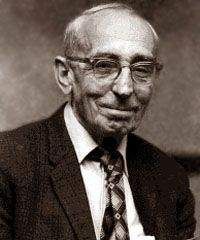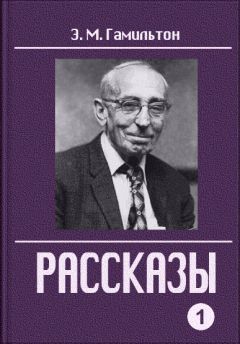Пользователь - o 3b3e7475144cf77c
"I'm tired of telling you about these people," he answered. "Get the Fürstin Donnerstein off
in a corner and ask her to give you the dirt!"
III
Any pleasure they might have got out of a visit to Berlin was ruined. They sat in their rooms
expecting a telephone call; they waited for every mail. They could think of nothing to do that
might not make matters worse; yet to do nothing seemed abominable. They thought: "Even if
he's in a concentration camp, he'll find some way to smuggle out a message! Surely all the
guards can't be loyal, surely some one can be bribed!"
Lanny bothered himself with the question: was he committing an act of bad faith with
Johannes in not informing him of this new situation? He had assured Johannes that the family
was all well. Was it now his duty to see the prisoner again and say: "Freddi has disappeared"? To
do so would be equivalent to telling the Gestapo— and so there was the same round of problems
to be gone over again. Even if he told Johannes, what could Johannes do? Was he going to say:
"No, Exzellenz, I will not sign the papers until I know where my younger son is. Go ahead and
torture me if you please." Suppose Goring should answer: "I have no idea where your son is. I
have tried to find him and failed. Sign—or be tortured!"
The agonizing thing was that anywhere Lanny tried asking a question, he might be involving
somebody else in the troubles of the Robin family. Friends or relatives, they would all be on
the Gestapo list—or he might get them on! Was he being followed? So far he had seen no signs of
it, but that didn't prove it mightn't be happening, or mightn't begin with his next step outdoors.
The people he went to see, whoever they were, would know about the danger, and their first
thought would be: "Um Gottes Willen, go somewhere else."
Rahel's parents, for example; he knew their names, and they were in the telephone book. But
Freddi had said: "Don't ever call them. It would endanger them." The family were not
Socialists; the father was a small lawyer, and along with all the other Jewish lawyers, had been
forbidden to practice his profession, and thus was deprived of his livelihood. What would happen if
a phone call were overheard and reported? Or if a rich American were to visit a third-class
apartment house, where Jews were despised and spied upon, where the Nazis boasted that
they had one of their followers in every building, keeping track of the tenants and reporting
everything suspicious or even unusual? The Brown Terror!
Was Lanny at liberty to ignore Freddi's request, even in an effort to save Freddi's life? Would
Freddi want his life saved at the risk of involving his wife and child? Would he even want his
wife to know about his disappearance? What could she do if she knew it, except to fret herself ill,
and perhaps refuse to let Lanny and Irma take her out of the country? No, Freddi would surely
want her to go, and he wouldn't thank Lanny for thwarting his wishes. Possibly he hadn't told
Rahel where Lanny and Irma were staying, but she must have learned it from the newspapers or
from her parents; and surely, if she knew where Freddi was, and if he needed help, she would
risk everything to get word to Lanny. Was she, too, in an agony of dread, hesitating to
communicate with Lanny, because Freddi had forbidden her to do so?
IV
Lanny bethought himself of the Schultzes, the young artist couple. Having got some of Trudi's
work published in Paris, he had a legitimate reason for calling upon her. They lived in one of the
industrial districts, desiring to be in touch with the workers; and this of course made them
conspicuous. He hesitated for some time, but finally drove to the place, a vast area of six-story
tenements, neater than such buildings would have been in any other land. Almost with out
exception there were flower-boxes in the windows; the German people didn't take readily to the
confinements of city life, and each wanted a bit of country.
A few months ago there had been civil war in these streets; the Brownshirts had marched and
the workers had hurled bottles and bricks from the rooftops; meetings had been raided and
party workers dragged away and slugged. But now all that was over; the promise of the Horst
Wessel Lied had been kept and the streets were free to the brown battalions. The whole
appearance of the neighborhood had changed; the people no longer lived on the streets, even in
this brightest spring weather; the children stayed in their rooms, and the women with their
market-baskets traveled no farther than they had to, and watched with furtive glances as they
went.
Lanny parked his car around the corner and walked to the house.
He looked for the name Schultz and did not find it, so he began knocking on doors and
inquiring. He couldn't find a single person who would admit having heard of Ludi and Trudi
Schultz. He was quite sure from their manner that this wasn't so; but they were afraid of him.
Whether he was a Socialist or a spy, he was dangerous, and "Weiss nichts" was all he could get.
Doubtless there were "comrades" in the building, but they had "gone underground," and you
had to know where to dig in order to find them. It was no job for "parlor Pinks," and nobody
wanted one to meddle with it.
V
Lanny went back to the hotel and continued his vigil. Sooner or later a note or a telephone
message was bound to come, and this painful business of guessing and imagining would end. He
went downstairs for a haircut, and when he came back he found his wife in a state of
excitement. "Mama called!" she whispered. "She has to buy some gloves at Wertheim's, and I'm to
meet her there in half an hour."
Irma had already ordered the car, so they went down, and while they were driving they
planned their tactics. Irma would go in alone, because the meeting of two women would be less
conspicuous. "Better not speak to her," suggested Lanny. "Let her see you and follow you out.
I'll drive round the block and pick you up."
The wife of Johannes Robin didn't need any warning as to danger; she was back in old
Russia, where fear had been bred into her bones. When Irma strolled down the aisle of the
great department store, Mama was asking prices, a natural occupation for an elderly Jewish
lady. She followed at a distance, and when Irma went out onto the street and Lanny came
along they both stepped into the car. "Where is Freddi?" she whispered with her first breath.
"We have not heard from him," said Lanny, and she cried: "Ach, Gott der Gerechte!" and hid
her face in her hands and began to sob.
Lanny hastened to say: "We have got things fixed up about Papa. He's all right, and is to be
allowed to leave Germany, with you and the others." That comforted her, but only for a
minute. She was like the man who has an hundred sheep, and one of them has gone astray,
and he leaves the ninety and nine and goeth into the mountains, and seeketh that which is
gone astray. "Oh, my poor lamb, what have they done to him?"
The mother hadn't heard a word from her son since he had called Lanny, and then written
her a comforting note. She had been doing just what Lanny had been doing, waiting, numb
with fear, imagining calamities. Freddi had forbidden her to call the Budds or to go near them,
and she had obeyed for as long as she could stand it. "Oh, my poor darling, my poor baby!"
It was a painful hour they spent. The good soul, usually so sensible, so well adjusted to her
routine of caring for those she loved, was now in a state of near distraction; her mind was as if in
a nightmare, obsessed by all the horror stories which were being whispered among the Jews in
the holes where they were hiding, apart from the rest of Germany. Stories of bodies found every
day in the woods or dragged out of the lakes and canals of Berlin; suicides or murdered people
whose fates would never be known, whose names were not mentioned in the press. Stories of the
abandoned factory in the Friedrichstrasse which the Nazis had taken over, and where they now
brought their victims to beat and torture them. The walls inside that building were soaked
with human blood; you could walk by it and hear the screams—but you had best walk quickly!
Stories of the concentration camps, where Jews, Communists, and Socialists were being made to
dig their own graves in preparation for pretended executions; where they underwent every
form of degradation which brutes and degenerates were able to devise—forced to roll about in
the mud, to stick their faces into their own excrement, to lash and beat one another insensible,
thus saving labor for the guards. "Oi, oi!" wailed the poor mother, and begged the Herrgott to
let her son be dead.
Only one thing restrained her, and that was consideration for her kind friends. "I have no
right to behave like this!" she would say. "It is so good of you to come and try to help us poor
wretches. And of course Freddi would want us to go away, and to live the best we can without
him. Do you really believe the Nazis will turn Papa loose?"
Lanny didn't tell her the story; he just said: "It will cost a lot of money"—he guessed that
would help to make it real to her mind. She couldn't expect any kindness of these persecutors,
but she would understand that they wanted money.
"Oh, Lanny, it was a mistake that we ever had so much! I never thought it could last. Let it all
go—if only we can get out of this terrible country."
"I want to get you out, Mama, and then I'll see what can be done about Freddi. I haven't
dared to try meantime, because it may make more trouble for Papa. If I can get four of you out
safely, I know that is what Freddi would want."
"Of course he would," said Mama. "He thought about everybody in the world but himself. Oi,
my darling, my little one, my Schatz! You know, Lanny, I would give my life in a minute if I
could save him. Oh, we must save him!"
"I know, Mama; but you have to think about the others. Papa is going to have to start life
over, and will need your counsel as he did in the old days. Also, don't forget that you have
Freddi's son."
"I cannot believe any good thing, ever again! I cannot believe that any of us will ever get out of
Germany alive. I cannot believe that God is still alive."
VI
Oberleutnant Furtwaengler telephoned, reporting that the prisoner had signed the necessary
documents and that the arrangements were in process of completion. He asked what Lanny
intended to do with him, and Lanny replied that he would take the family to Belgium as soon as
he was at liberty to do so. The businesslike young officer jotted down the names of the persons
and said he would have the exit permits and visas ready on time.
It would have been natural for Lanny to say: "Freddi Robin is missing. Please find him and
put me in touch with him." But after thinking and talking it over for days and nights, he had
decided that if Freddi was still alive, he could probably survive for another week or two, until the
rest of his family had been got out of the country.
Lanny had no way to hold Goring to his bargain if he didn't choose to keep it, and as half a
loaf is better than no bread, so four-fifths of a Jewish family would be better than none of them—
unless you took the Nazi view of Jewish families!
However, it might be the part of wisdom to prepare for the future, so Lanny invited the
Oberleutnant to lunch; the officer was pleased to come, and to bring his wife, a tall sturdy girl
from the country, obviously very much flustered at being the guest of a fashionable pair who
talked freely about Paris and London and New York, and knew all the important people. The
Nazis might be ever so nationalistic, but the great world capitals still commanded prestige.
Seeking to cover up his evil past, Lanny referred to his former Pinkness, and said that one
outgrew such things as one grew older; what really concerned him was to find out how the
problem of unemployment could be solved and the products of modern machinery distributed; he
intended to come back to Germany and see if the Führer was able to carry out his promises.
A young devotee could ask no more, and the Oberleutnant warmed to his host and hostess.
Afterward Irma said: "They really do believe in their doctrine with all their hearts!" Lanny saw
that she found it much easier to credit the good things about the Hitler system than the evil.
She accepted at face value the idea current among her leisure-class friends, that Mussolini had
saved Italy from Bolshevism and that Hitler was now doing the same for Germany. "What good
would it do to upset everything," she wished to know, "and get in a set of men who are just as
bad as the Nazis or worse?"
One little hint Lanny had dropped to the officer: "I'm keeping away from the Robin family
and all their friends, because I don't want to involve myself in any way in political affairs. I am
hoping that nothing of an unhappy nature will happen to the Robins while we are waiting. If
anything of the sort should come up I will count upon Seine Exzellenz to have it corrected."
"Ja, gewiss!" replied the officer. "Seine Exzellenz would not permit harm to come to them—in
fact, I assure you that no harm is coming to any Jewish persons, unless they themselves are
making some sort of trouble."
The latter half of this statement rather tended to cancel the former half; it was a part of the
Nazi propaganda. That was what made it so difficult to deal with them; you had to pick every
sentence apart and figure out which portions they might mean and which were bait for suckers.
The Oberleutnant was cordial, and seemed to admire Lanny and his wife greatly; but would
this keep him from lying blandly, if, for example, his chief was holding Freddi Robin as a
hostage and wished to conceal the fact? Would it keep him from committing any other act of
treachery which might appear necessary to the cause of National Socialism? Lanny had to keep
reminding himself that these young men had been reared on Mein Kampf; he had to keep




